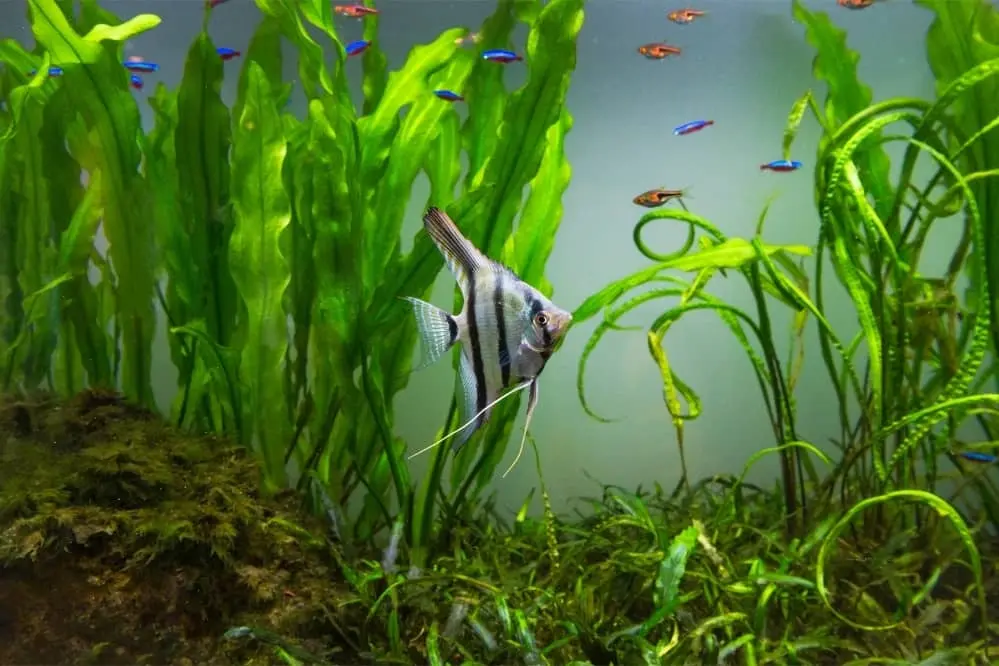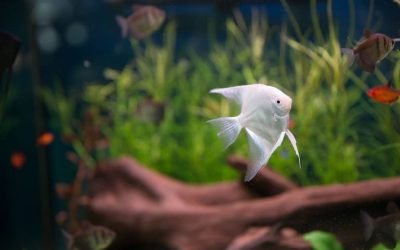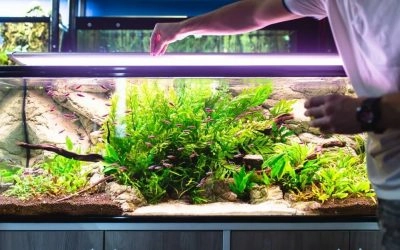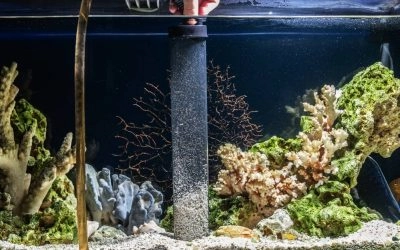Are Dead Plants Bad for Aquariums?

When it comes to maintaining an aquarium, there are a lot of different things that you have to be mindful of , and this includes removing things inside the aquarium that can end up being harmful to the fish, such as fecal matter and food remains.
One area of debate when it comes to aquarium cleaning is whether or not you should allow dead plants to stay in the aquarium for a little bit after they have wilted and deteriorated, or if they need to be removed as soon as possible. On the one hand, dead or dying plants are natural in a fish’s standard environment, so is it really necessary to remove them? On the other hand, when plants die, they release carbon compounds and chemicals that can be dangerous for your fish’s health.
The most important thing you can do is do your research on the plants in the aquarium tank. All plants are different and some plants are fine to leave for decomposition, while others can prove themselves to be lethal. Knowing which plants give off which effects in their death will be important for keeping your fish safe.
Mimicking the Fish’s Natural Environment
Ideally, when you have fish in an aquarium, you will want to mimic their natural environment to the best of your ability. Of course, this includes matching the temperature and pH levels of the water to that of its ideal habitat, but this also means using vegetation and aquarium decorations that are somewhat similar to what the fish would encounter in the wild. This is for more than just stylistic purposes.
When you use the plants that those fish are used to having in their environment, then it means that those fish have historically adapted to those plants and the compounds they may release on death. While the finite space of an aquarium provides less room for the concentration of those compounds, it often means that there’s far less of a chance that the dead plants will be as fatal for the fish as others can be.
When you use plants that are not native to the fish’s natural environment, there is an increased chance that the fish isn’t used to the compounds that the decaying plants give off, meaning that it may have no tolerance for it. This can prove dangerous for the fish’s health and in these cases, you should try to remove the plant as soon as you notice its death so that you can keep the fish safe.
The Problem with Dying Plants
Not only do decaying plants affect the molecular content of the water that your fish are in, but they have an increased chance to transfer diseases to your fish, which can affect their health as well. The two most well-known problems caused by this are known as plant ich and plant rot. Plant ich is a fairly common infection that fish can pick up and die from, but aquarium plants can also carry this disease, and when they begin to decay, a contaminated plant can spread the parasite all over the aquarium, causing massive risks for your fish and any other plants in the tank.
Plant rot happens when plants don’t get enough light or nutrition, and as the name suggests, they begin to rot away. This can drastically affect the water quality of the tank, especially with ammonia levels. The ammonia build-up as most aquarium owners know is toxic for fish.
Ideally, you want to keep the ammonia levels in the tank at constantly low level but some degree of ammonia is necessary as it helps to sustain and maintain the good bacteria and the overall quality of the water. When something happens to the tank to affect those levels, such as a dying plant, it is important to remove the source of the increased ammonia and correct the water levels as necessary.




0 Comments